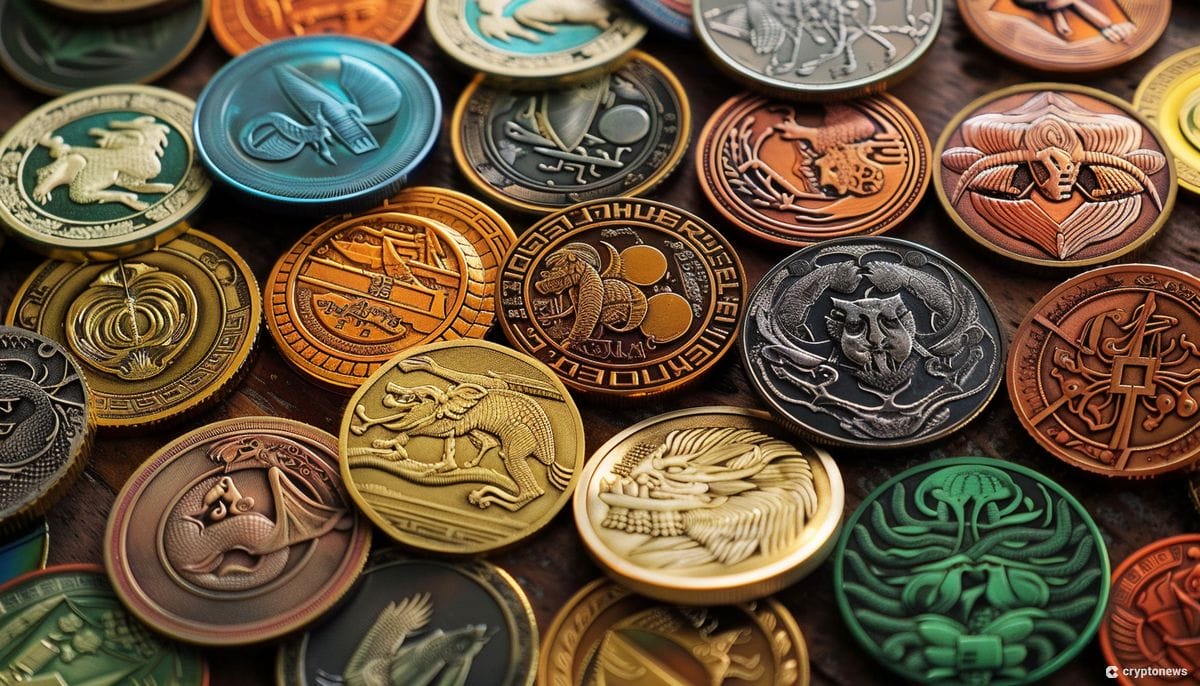A new class of meme coins, “culture coins”, centered around cultural values such as politics, lifestyle, and religion could achieve greater growth in this cycle than meme coins such as Dogecoin and Shiba Inu, according to Mechanism Capital co-founder Andrew Kang.
Kang tweeted on April 7 that meme coins focusing on deeper cultural themes could offer greater profit potential than traditional meme tokens centered around animals and simple jokes.
Emergence of Culture Coins: Investing in Memecoins with Strong Cultural Affiliations
Culture Coins: A new class of Memecoins
You could consider all memecoins as coins of culture. Memes themselves are defined as elements of culture that are spread by individuals throughout the world. The first big memecoin, Doge was based on a famous internet meme itself and the… pic.twitter.com/8ZANSXIdIQ
— Andrew Kang (@Rewkang) April 7, 2024
Kang believes culture coins have the potential to go viral due to the strong values and identities of their communities.
He pointed out specific examples like Jeo Boden (BODEN) and Donald Trump (TREMP) – Solana-based meme coins that have rapidly gained traction within communities holding “anti-woke, anti-Biden, and right-wing views.”
BODEN, launched on March 9, has seen remarkable growth, with gains exceeding 700,000% since its inception and a market capitalization of $473 million. TREMP, a Donald Trump parody coin launched on February 27, has also experienced major gains, albeit not as much as BODEN, with a market cap of $73 million.
According to Kang, assets that “pump the hardest,” such as stocks, real estate, metals, and coins, are simply assets that people can best believe in. This makes them somewhat similar to meme coins, whose values are mainly driven by a pool of investors who rally together behind a project.
He stated that Mechanism Capital has strategically invested in culture coins that appeal to large real-world communities, focusing on strong teams, token communities, and compelling marketing campaigns.
In addition to political ideologies, Kang suggested that meme coins inspired by successful consumer brands, like ZYN and MOUTAI, could leverage the associated lifestyle of those brands for added virality. He described this phenomenon as a “circular economy” of gains.
$MOUTAI, represents a massive opportunity as the potential “mem ecoin of China and Asia.” Moutai, a renowned liquor brand popular among the Chinese and Chinese diaspora, symbolizes wealth and success.
$ZYN, on the other hand, represents a widely popular nicotine pouch product that has fostered a thriving community of “zynners” and influencers. The coin caters to a demographic of “bro” culture, including athletes and finance professionals, who may have disposable income for investment.
Debate Over Memecoins Intensifies as Sector Emerges as Most Profitable Narrative
While some, like BitMEX co-founder Arthur Hayes, view meme coins as a positive force for blockchain networks, others criticize them as speculative and potentially harmful to the industry’s founding principles.
According to a recent report by CoinGecko, the memecoin sector has become the most profitable narrative so far this year, surpassing other trends like tokenized real-world assets (RWA) and layer 2 solutions in terms of profitability.
The meme coins recorded the highest returns of 1,312.6% on average across the top tokens by market capitalization. Meme coins launched in March made it to the top 10 list by market value by the end of the quarter, including Book of Meme (BOME), Brett, and Cat in a Dogs World (MEW).
BRETT recorded the highest returns of 7,727.6% by the end of Q1 2024, followed by Dogwifhat (WIF), which witnessed a 2,721.2% growth year-to-date after going viral amid the Solana-based meme coin frenzy.
At the time of publication, the total market cap of the memecoin sector is $64.8 billion, accounting for approximately 2.32% of the total cryptocurrency market capitalization. This is a 176.9% increase quarter-on-quarter.
Read the full article here

